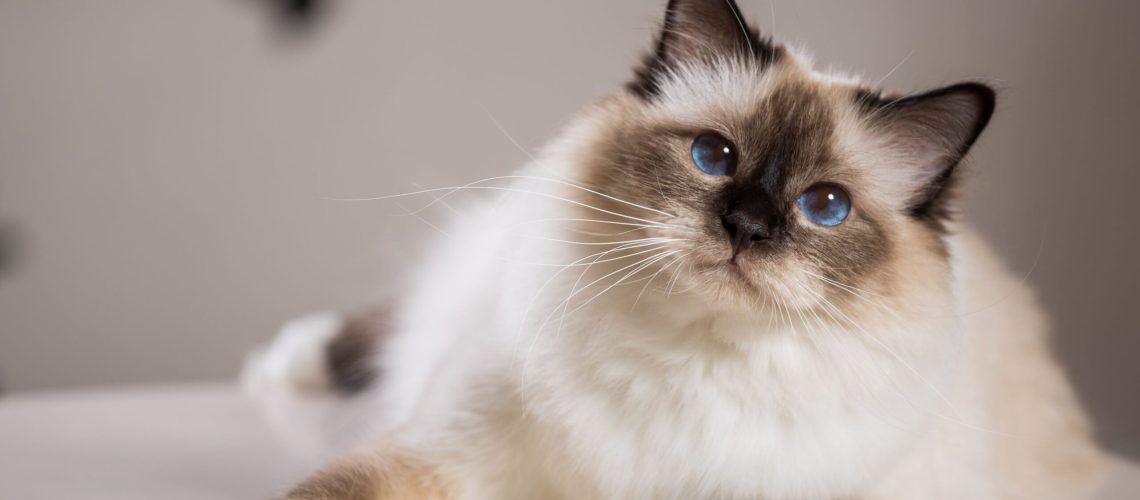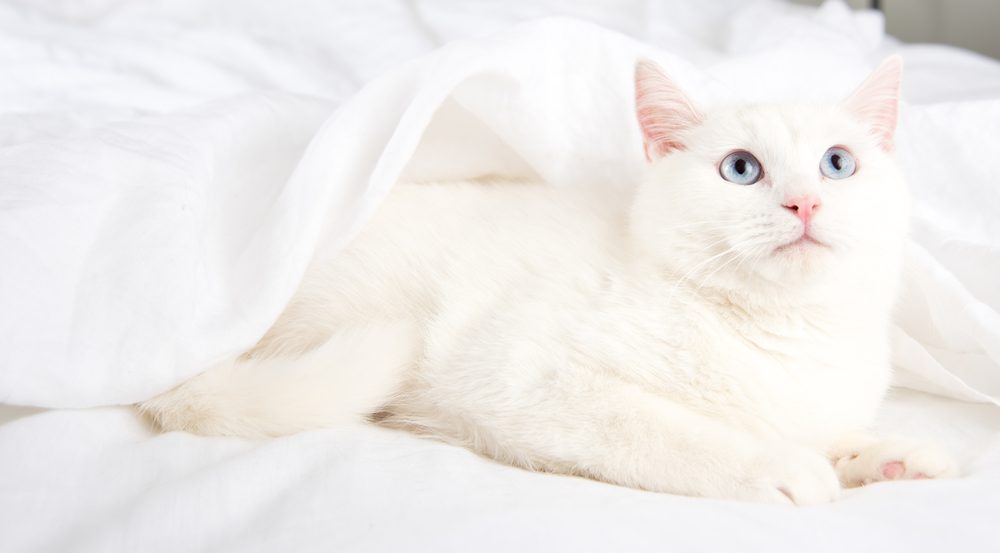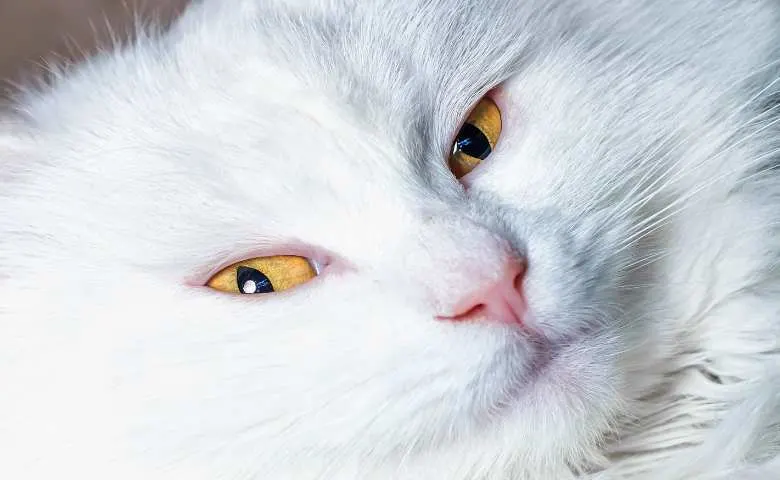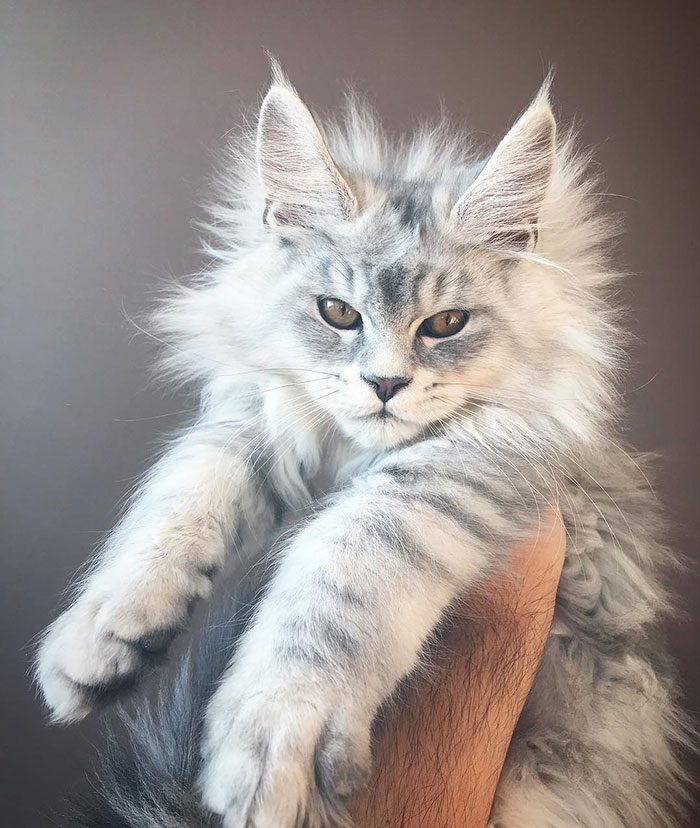Are you ready to discover the enchanting world of Birman cats? These majestic creatures possess a beauty that is truly captivating, but their allure goes far beyond their stunning appearance.
By diving into this cat breed's profile and care tips, you will unlock a wealth of knowledge that will not only enhance your understanding of these feline wonders but also enable you to provide them with the love and care they deserve. Get ready to fall in love with these incredible creatures as we uncover the secrets behind their irresistible charm.
Key Takeaways:
- The Birman cat breed is known for its striking appearance, with a luxurious coat and captivating blue eyes.
- Birmans are friendly and affectionate cats, often seeking out human companionship and enjoying being part of the family.
- Proper grooming is essential for maintaining the Birman's beautiful coat, which should be brushed regularly to prevent matting.
- Birmans are generally healthy cats but may be prone to certain genetic health issues, such as hypertrophic cardiomyopathy (HCM).
- Providing mental stimulation through interactive toys and playtime is important to keep Birmans entertained and prevent boredom.
The Birman Cat Breed: Known for its Unique Characteristics
What Makes Birman Cats Special?
Birman cats are known for their striking appearance and gentle nature. They have beautiful blue eyes that seem to sparkle, and their silky fur comes in a variety of colors, including seal, blue, chocolate, lilac, and more. One unique characteristic of the Birman breed is their white paws, which stand out against the rest of their dark-colored bodies.
Another special trait of Birman cats is their friendly and sociable nature. They love being around people and are often described as "dog-like" in their behavior. Birmans are known to follow their owners around the house and enjoy being part of family activities. Their calm temperament makes them great companions for both adults and children.
A Bit of History
The origin of the Birman cat breed can be traced back to ancient legends from Burma (now Myanmar). According to one story, Birmans were considered sacred temple cats that lived alongside priests in Burmese temples. It is believed that these cats were kept as protectors of the temples and were highly regarded by the priests.
In the early 20th century, a pair of Birmans was brought from Burma to France by a traveler named Auguste Pavie. These cats became the foundation for breeding programs in Europe, leading to the establishment of the Birman breed as we know it today. The breed gained recognition and popularity over time due to its unique appearance and wonderful personality.
Discovering the Origin of the Birman Cat Breed
Ancient Legends from Burma
The origin of the Birman cat breed can be traced back to ancient legends from Burma (now Myanmar). According to one story, Birmans were considered sacred temple cats that lived alongside priests in Burmese temples. It is believed that these cats were kept as protectors of the temples and were highly regarded by the priests.
The legend goes that the golden goddess Tsun-Kyan-Kse visited the temple of Lao-Tsun and transformed the temple's white cats into Birmans by turning their fur golden and their eyes blue. She also blessed them with purity and longevity. The white paws of Birmans are said to symbolize the purity of the temple's white marble floors.
The Journey to Europe
In the early 20th century, a pair of Birmans was brought from Burma to France by a traveler named Auguste Pavie. These cats, named Sita and Dara, became the foundation for breeding programs in Europe. They were initially exhibited at cat shows in France, where they attracted attention with their unique appearance.
Over time, more Birmans were imported from Burma to Europe, expanding the gene pool and ensuring the preservation of this special breed. The Birman breed gained recognition and popularity throughout Europe and later in other parts of the world due to its captivating history and distinctive characteristics.
Exploring the Appearance of a Birman Cat: A Beautiful Sight!
A Striking Coat
Birman cats have a luxurious coat that is soft, silky, and semi-longhaired. Their fur comes in various colors such as seal (dark brown), blue (gray), chocolate (rich brown), lilac (pale purple-gray), red (orange-red), cream (light beige), and tortie (a mix of colors). The fur is usually darker on their backs and lighter on their bellies.
One remarkable feature of Birman cats is their color-point pattern, similar to that of Siamese cats. This means that their ears, face, paws, and tail are darker in color compared to the rest of their body. The contrast between the dark points and the lighter body creates a striking and elegant appearance.
Sparkling Blue Eyes
The eyes of Birman cats are one of their most captivating features. They have large, round eyes that are a deep shade of blue. The intensity of their blue eyes can vary from cat to cat, but they always have a mesmerizing sparkle that adds to their charm.
Birman kittens are born with blue eyes, but as they grow older, their eye color develops into the rich blue hue that is characteristic of the breed. The combination of their striking blue eyes and contrasting fur colors makes Birman cats truly stunning.

Caring for Your Birman Cat: Tips for Health and Happiness
A Balanced Diet
Feeding your Birman cat a balanced diet is essential for maintaining its health and happiness. Choose high-quality cat food that is specifically formulated for adult cats or kittens, depending on your cat's age. Look for options that contain real meat as the primary ingredient and avoid foods with excessive fillers or artificial additives.
It's important to provide fresh water at all times and monitor your Birman's eating habits. Birmans can be prone to overeating if given free access to food, so it's best to establish regular meal times and measure out appropriate portions according to your veterinarian's recommendations.
Grooming Routine
Birman cats have a silky coat that requires regular grooming to keep it in top shape. Brushing your Birman at least once a week helps prevent matting and removes loose hair. Use a soft-bristled brush or a grooming glove to gently comb through the fur.
In addition to regular brushing, it's important to check your Birman's ears for any signs of dirt or infection. Clean the ears with a veterinarian-recommended ear cleaner using a soft cotton ball or pad. Trim your cat's nails regularly and provide scratching posts to help keep them in good condition.
Regular Veterinary Care
Regular veterinary care is crucial for keeping your Birman cat healthy and preventing any potential health issues. Schedule annual check-ups with your veterinarian, who can assess your cat's overall health, administer vaccinations, and provide preventive treatments for parasites such as fleas and ticks.
It's also important to monitor your Birman's weight and ensure they maintain a healthy body condition. Obesity can lead to various health problems, so consult with your veterinarian about appropriate portion sizes and feeding guidelines for your cat's specific needs.
Birman Cats: Friendly and Sociable Companions
A Social Nature
Birman cats are known for their friendly and sociable nature. They enjoy being around people and are often described as "lap cats" because they love cuddling up on their owners' laps. Birmans are not typically aloof or independent; they thrive on human companionship and form strong bonds with their family members.
These cats often follow their owners around the house, wanting to be part of every activity. They will greet you at the door when you come home and may even try to join in on conversations by meowing or purring. Birmans are great companions for both individuals and families, including children, as they are patient and gentle by nature.
Playful Personalities
Birman cats have playful personalities that can bring joy and entertainment to your home. They enjoy interactive play sessions with their owners, whether it's chasing a feather toy or batting at a dangling string. Providing them with toys that stimulate their natural hunting instincts can keep them mentally and physically active.
Despite their playful nature, Birmans are generally not overly energetic or hyperactive. They strike a good balance between being active and enjoying quiet relaxation time. They are content to curl up on a cozy spot near you when they're not in the mood for play.
Maintaining a Gorgeous Coat: Keeping Your Birman Cat's Fur in Top Shape
Regular Brushing Routine
Keeping your Birman cat's fur in top shape requires regular brushing to prevent matting and remove loose hair. Set aside some time each week for grooming sessions with your Birman. Use a soft-bristled brush or a grooming glove to gently comb through the fur, paying extra attention to areas prone to tangling such as the belly and hindquarters.
Birmans have semi-long hair, which means they shed less compared to long-haired breeds like Persians. However, shedding still occurs, especially during seasonal changes. Regular brushing helps minimize shedding by removing loose hairs before they end up on your furniture or clothing.
Bathing Tips
Bathing a Birman cat is usually not necessary unless they get particularly dirty or have skin issues that require special care. Birmans are known for their cleanliness and often groom themselves like little perfectionists. However, if you do need to bathe your Birman, use a gentle cat shampoo specifically formulated for feline use.
Before bathing, make sure to brush out any tangles or mats from the fur. Use lukewarm water and be gentle when wetting and rinsing your cat. Avoid getting water in their ears and eyes. After bathing, wrap your Birman in a towel and gently pat them dry. Allow them to air dry completely before brushing their fur again.
Common Health Issues in Birman Cats: Prevention and Treatment
Genetic Health Concerns
Like any other breed, Birman cats may be prone to certain genetic health issues. One of the most common concerns is hypertrophic cardiomyopathy (HCM), a condition that affects the heart muscles. Regular veterinary check-ups, including cardiac screenings, can help detect any signs of HCM early on.
Birmans may also be susceptible to polycystic kidney disease (PKD), a condition characterized by the formation of cysts in the kidneys. DNA testing can identify cats carrying the PKD gene, allowing responsible breeders to make informed breeding decisions and reduce the risk of passing on the disease.
Dental Care
Birman cats, like many other breeds, can develop dental problems if proper care is not taken. Dental issues such as periodontal disease or tooth decay can cause discomfort and affect their overall health. To prevent these problems, establish a regular dental care routine for your Birman.
Brushing your cat's teeth with a veterinarian-approved toothpaste and toothbrush designed for feline use is an effective way to maintain good oral hygiene. Additionally, providing dental treats or toys specifically designed to promote dental health can help keep your Birman's teeth clean and strong.
In conclusion, the Birman cat breed is known for its stunning beauty and gentle nature. Taking proper care of a Birman includes regular grooming, a balanced diet, and plenty of love and attention.
Are Birman cats hard to take care of?
The Birman breed has a single coat, making it less prone to tangling. While they require less maintenance compared to other pedigree breeds, regular grooming is still important for medium and long-haired cats. A weekly grooming session is sufficient to keep their coat soft and flowing.
What do I need to know before getting a Birman?
Birmans are gentle animals that are sociable and get along well with other pets. They require a lot of attention from their owners, preferably by being held. This makes them well-suited for older individuals who prefer a calmer pet and don't want a highly energetic kitten running around their home.
What is special about Birman cats?
The Birman cat is known for its affectionate, friendly, and gentle personality. They are also curious and easy-going, making them a great choice for families with children or homes with other pets.
Are Birman cats low maintenance?
While it's beneficial to keep him engaged, he isn't a demanding cat and is content with a few scratches on the head or back. The Birman breed has a fluffy coat, but surprisingly, it doesn't require much grooming besides occasional brushing. This makes them very easy to maintain in terms of grooming.
Do Birman cats like to cuddle?
Birmans are a cat breed with long hair and blue eyes. They are famous for their silky coats and are incredibly affectionate animals. They enjoy being petted and are known for their love towards not only humans but also other pets in the household, often cuddling up with dogs.
Should you bathe a Birman cat?
To maintain their coat, Birmans only require a weekly brushing or combing. Birmans are generally not fond of water, so if you want to give them a bath, it is recommended to start when they are young so they can become accustomed to it.

















